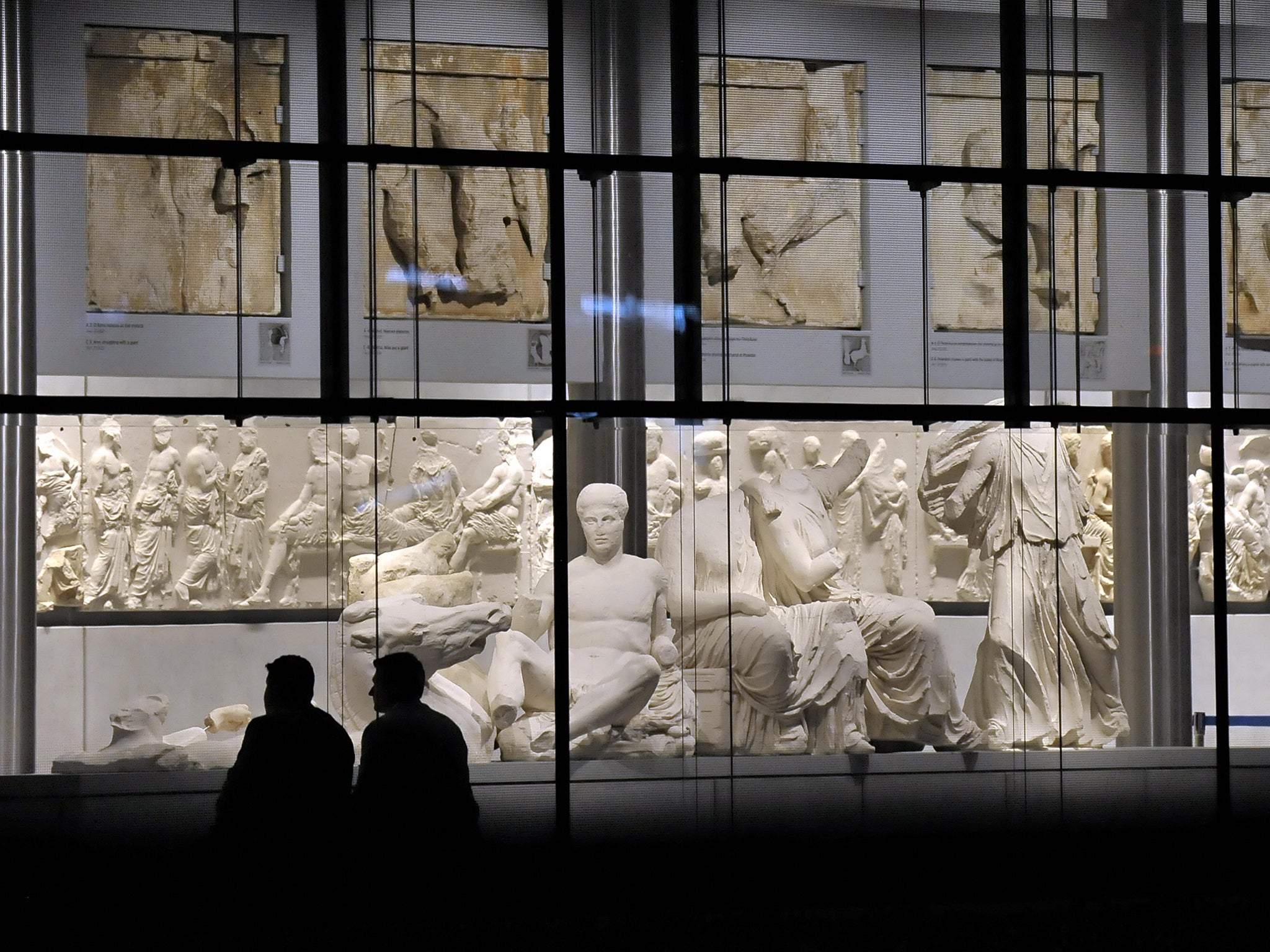Greece’s president has called for the UK to return a set of classical sculptures from the “murky prison” of the British Museum.
Speaking at the Acropolis Museum in Athens on Monday, Prokopis Pavlopoulos fired the latest salvo in the long-running dispute over the Elgin Marbles (also known as the Parthenon Marbles).
“Let the British Museum come here and make the comparison between this museum of light and the murky, if I may say, prison of the British Museum where the Parthenon Marbles are held as trophies,” Mr Pavlopoulos said.
The disputed statues were a part of the Acropolis in Athens before they were removed in the early 1800s by British peer Lord Elgin and put on display in London.
The institution has recently ruled out returning the sculptures, although it has not yet responded to the latest call – the likes of which Greek politicians have regularly made for decades.
Greek ministers called for the opening of talks over the sculptures last August, amid fears they could be used as leverage in Brexit talks. The UK government said the decision is down to the British Museum because the marbles are its “legal property”.
In a January interview with Ta Nea, a Greek daily newspaper, British Museum director Hartwig Fischer ruled out returning the marbles, telling the publication: “The trustees of the British Museum feel the obligation to preserve the collection in its entirety, so that things that are part of this collection remain part of this collection.”
Lord Elgin claimed he received permission from the authorities of the Ottoman empire, which occupied Greece at the time, to take the treasures.
Archaeological treasures of ancient Greece
Show all 9While this fact is in itself disputed, Greeks who demand the statues’ return say the occupying power did not have the legitimacy to give away such a central part of Greek cultural heritage.
The return of the statues is one of the longest-running cultural heritage disputes on the planet, with their removal from Athens being denounced by some almost immediately in the 1800s.
About half of the surviving statues, which were not removed at the time, are on display in Athens at the Acropolis Museum the president was speaking at. Among critics of the British possession of the marbles was poet Lord Byron, who himself fought and died in the Greek war of independence from Ottoman Turkey.
Defenders of keeping the statues in Britain have argued that returning them would set a precedent and lead to the potential return of a vast array of items from many of the world’s great museums, some of which were acquired in a similar manner. They say the British Museum is free to view.
Polling conducted in 2014 suggested the British public mostly back the marbles’ return or are largely ambivalent: YouGov found 37 per cent think the statues should go back to Greece, 32 per cent did not mind either way, while 23 per cent said they should remain in Britain. Seven per cent said they did not know.
Subscribe to Independent Premium to bookmark this article
Want to bookmark your favourite articles and stories to read or reference later? Start your Independent Premium subscription today.


Join our commenting forum
Join thought-provoking conversations, follow other Independent readers and see their replies